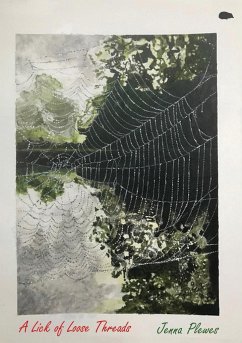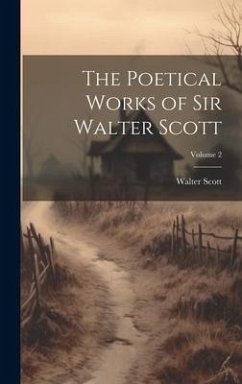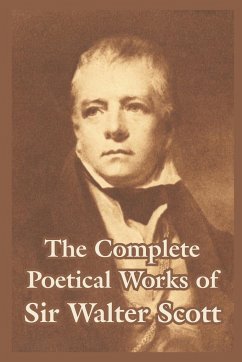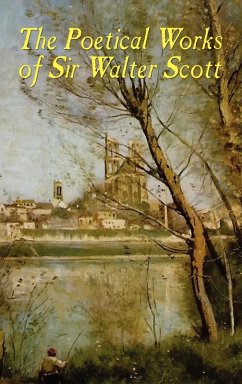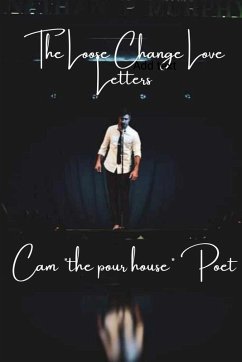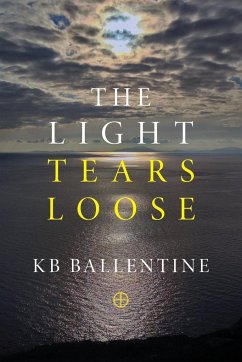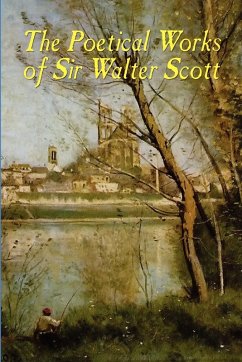
Loose Connexions: The Poetry of Walter Redfern
Versandkostenfrei!
Versandfertig in über 4 Wochen
25,99 €
inkl. MwSt.

PAYBACK Punkte
13 °P sammeln!
Professor J.M. Parkin, Bristol University writes: "...There's no real point if there's no levity." Such might be the epigraph not just to this collection, but indeed to the literary and academic career, if not the very life, of Walter Redfern. Charting a typically independent, droll and thought-provoking path through the stock lyric themes of love, death and nostalgia, these poems enrich his reader's experience not only by creating an attractive persona, and one close, as I personally know, to the man himself, but also by commenting sometimes ironically, sometimes obliquely but never sarcastic...
Professor J.M. Parkin, Bristol University writes: "...There's no real point if there's no levity." Such might be the epigraph not just to this collection, but indeed to the literary and academic career, if not the very life, of Walter Redfern. Charting a typically independent, droll and thought-provoking path through the stock lyric themes of love, death and nostalgia, these poems enrich his reader's experience not only by creating an attractive persona, and one close, as I personally know, to the man himself, but also by commenting sometimes ironically, sometimes obliquely but never sarcastically on that very procedure. The connexions vary in their degree of looseness and can take us very close to home, his and ours. For instance the family figure strongly, especially Mr Redfern senior, evoked with a pride and tenderness that inevitably summon up Dylan Thomas, but avoid all emotional overstatement. Meanwhile, alongside evocations of foreign lands and sites (Mexico, Turkey, the Provençal monastery of Ganagobie, Corfu, burial place of a drowned friend ...) we enjoy endearing snapshots of his native Liverpool: Roger McGough pays the town similar tributes, and the comparisons will again enlighten and enliven those experiencing Redfern for the first time. Love and desire are treated with sincerity, discretion and a degree of wit redolent of Larkin but far more tenderly, while the poet's French studies bear rich fruit in his witty response, composed by a vengeful Hélène, to the famous sonnet on her inevitable loss of youth and beauty, once penned by a Ronsard she now freely condemns as a bastard. Correspondingly the poet exploits, and to telling effect, his own advancing age and indeed illness, particularly his hospitalisation in a cardiac ward, and in a way that defies the loss of inspiration afflicting some (like Larkin, unlike Ronsard) in their later years. Stevie Smith is an intriguing analogue in this connexion, but Redfern's wit proves a powerful barrier against any depression threatening his persona, or, one hopes, his public. A world authority on humour, especially puns, he ends his anthology with a series of pithy verses at once celebrating and demystifying such irritatingly complex terms as zeugma, adianoeta and litotes, which he guys with a levity reminiscent of Ogden Nash, but one specifically fed by his own career of literary and linguistic investigation. Ever a lover of language on its own abounding terms, he concludes with the delightfully self-deflating touch whereby his tee-shirt would simply bear the words "No comment". Over to you, gentle readers." Professor J. Parkin,D/French, Bristol University; author of French Humour Between many of these poems there have been gaps of varying lengths. I am not an occasional poet, but surely a spasmodic one. Glimmering ideas, half-formed images, insistent rhythms start needling and pestering me to be written out, that is, after a fashion, put into some kind of orderliness. It is often quite a long wait. Frequently, it is a pun or a cluster of wordplays, a reworked idiom or cliché, that provide the backbone. I believe that the pun per se can be thought of as the foundation, the ground rule, of all language. So very many words in umpteen languages do double, or multiple, duty. Playing between these possibilities can be, on occasion, when the wind is in the right direction, a source of poetry. For the pun (at least at its infrequent best) is essentially poetic. If you notice and bring to others' attention unexpected links between supposedly distinct objects, ideas, feelings, words, you are in effect punning and simultaneously creating poetically. Puns save space, if not labour. Besides, if they were good enough for Shakespeare, John Donne, or Thomas Hood, then they certainly are for me. Secondly, as to where I come from (in both senses), I will repeat what I have said elsewhere. Born in a would-be free port, Liverpool, hostile to kneejerk 'pietas ergs parientes', not much of a patriot, a blind fan neither of the present age nor of any previous ones, still less hankering for any imaginary one, as a teenager I wanted vainly to be the captain of my soul, even if I was too dubious to aim to be the master of my fate. Largely because my chief rival at school, and ever after one of my most durable friends, submitted proudly to letting the style and mannerisms of various leading contemporary poets infiltrate his first attempts at writing poetry, for my parallel first shots I refused on principle even to read any such possible pathfinders or mentors. Talk about the anxiety of influence. In older age, both his and my poems are recognisably idiosyncratic. Some forms of backfiring seem beneficial. Whatever the text of these poems is up to, please just read them, and make your own mind up.



